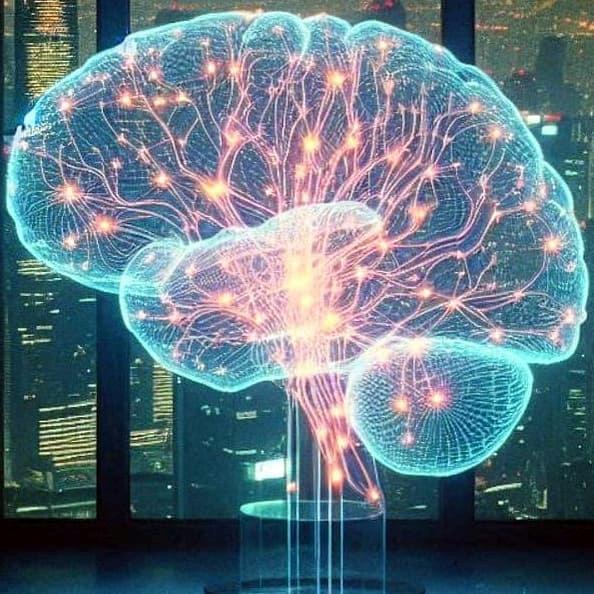

Mental Health First Aid in Australia
Table of Contents
1. Introduction
2. Understanding Mental Health in Australia
3. Recognizing Mental Health Crises
4. The ALGEE Action Plan
5. Common Mental Health Conditions in Australia
6. Legal and Ethical Considerations
7. Resources and Support Services
8. Conclusion
1. Introduction
Mental Health First Aid (MHFA) is a vital skill in contemporary Australian society. With approximately one in five Australians experiencing a mental illness in any given year, the ability to provide initial support to those facing mental health challenges is increasingly important.
This ebook aims to provide a comprehensive overview of Mental Health First Aid in the Australian context. It is designed to equip readers with essential knowledge and skills to recognize mental health issues, offer initial support, and guide individuals towards appropriate professional help.
Mental Health First Aid, developed in Australia in 2000 by Betty Kitchener and Professor Tony Jorm, has since become a globally recognized program. It teaches people how to assist someone who is developing a mental health problem, experiencing a worsening of an existing mental health problem, or in a mental health crisis.
By the end of this ebook, readers will have a solid foundation in MHFA principles and practices, tailored to the unique cultural and social landscape of Australia. While this resource provides valuable
information, it's important to note that it does not replace formal MHFA training and certification.

2. Understanding Mental Health in Australia
2.1 The State of Mental Health in Australia
Mental health is a significant public health issue in Australia. According to the Australian Institute of Health and Welfare:
45% of Australians aged 16-85 will experience a mental illness at some point in their life.
The most common mental illnesses are anxiety disorders (affecting 14% of adults annually) and depressive disorders (affecting 6% of adults annually).
Approximately 4% of Australian adults experience a severe mental illness each year.
2.2 Cultural Factors Influencing Mental Health
Australia's diverse population means that cultural factors play a significant role in mental health:
Aboriginal and Torres Strait Islander peoples experience higher rates of psychological distress and mental illness compared to nonIndigenous Australians.
Culturally and Linguistically Diverse (CALD) communities may face unique challenges, including acculturative stress and trauma from refugee experiences.
LGBTQIA+ individuals have higher rates of mental health issues due to experiences of discrimination and social exclusion.
2.3 The Impact of Environmental Factors
Recent environmental challenges have had a significant impact on mental health in Australia:
Bushfires, droughts, and floods have led to increased rates of anxiety, depression, and post-traumatic stress disorder in affected communities.
The COVID-19 pandemic has exacerbated mental health issues, with increased rates of anxiety, depression, and social isolation reported across the country.
2.4 Stigma and Mental Health
Despite progress, stigma remains a significant barrier to seeking help for mental health issues in Australia. Understanding and addressing stigma is crucial for effective mental health first aid.

3. Recognizing Mental Health Crises
3.1 Signs of a Mental Health Crisis
A mental health crisis can manifest in various ways. Common signs include:
Extreme agitation or anxiety
Confused thinking or irrational thoughts
Hallucinations or delusions
Severe mood swings
Inability to perform daily tasks
Isolation from friends and family
Thoughts of self-harm or suicide
3.2 Specific Crisis Situations
3.2.1 Suicidal Thoughts and Behaviors
Warning signs may include:
Talking about wanting to die or kill oneself
Researching suicide methods
Withdrawing from social contact
Extreme mood swings
Increasing alcohol or drug use
3.2.2 Panic Attacks
Symptoms of a panic attack can include:
Rapid heartbeat
Shortness of breath
Chest pain
Dizziness
Intense fear or sense of doom
3.2.3 Psychotic Episodes
Signs of a psychotic episode may include:
Hallucinations (seeing, hearing, or feeling things that aren't there)
Delusions (fixed, false beliefs)
Disorganized speech or behavior
Social withdrawal
3.3 Risk Assessment
Learning to conduct a basic risk assessment is crucial in MHFA. This includes assessing:
Immediate danger to self or others
Ability to care for self
Substance use
Social support
Previous mental health history
4. The ALGEE Action Plan
The ALGEE action plan is the core of Mental Health First Aid. Each step is crucial in providing effective support:
4.1 Approach, assess and assist with any crisis
Approach the person calmly and with respect
Assess for risk of suicide or harm
Assist the person to get appropriate help
Techniques:
Use a calm, reassuring tone
Ensure your own safety and that of others
If in doubt about safety, involve emergency services
4.2 Listen and communicate non-judgementally
Give the person your undivided attention
Listen without judgment
Use verbal and non-verbal communication skills
Techniques:
Use open body language
Reflect back what you've heard to ensure understanding
Avoid dismissing the person's feelings or experiences
4.3 Give support and information
Offer emotional support and understanding
Provide practical help if needed
Give factual information about mental health
Techniques:
Validate the person's feelings
Offer hope for recovery
Provide information from reliable sources
4.4 Encourage appropriate professional help
Suggest seeking help from a mental health professional
Discuss available options for treatment and support
Options may include:
General Practitioner
Psychologist or counselor
Psychiatrist
Mental health support groups
4.5 Encourage other supports
Help the person identify supportive friends and family
Encourage self-help strategies and other support mechanisms
Strategies may include:
Regular exercise
Healthy diet
Stress reduction techniques
Connecting with community groups

5. Common Mental Health Conditions in
Australia
5.1 Depression
Affects around 1 million Australian adults each year
Symptoms include persistent low mood, loss of interest in activities, changes in sleep and appetite
Treatment often involves a combination of therapy and medication
5.2 Anxiety Disorders
Most common mental health condition in Australia
Includes generalized anxiety disorder, social anxiety, specific phobias, and panic disorder
Symptoms vary but often include excessive worry, restlessness, and physical symptoms like rapid heartbeat
Treatment may involve cognitive-behavioral therapy and sometimes medication
5.3 Substance Use Disorders
Affects approximately 5% of Australians
Involves problematic use of alcohol, illicit drugs, or prescription medications
Treatment often involves a combination of counseling, support groups, and sometimes medication
5.4 Eating Disorders
Affect approximately 4% of the Australian population
Include conditions like anorexia nervosa, bulimia nervosa, and binge eating disorder
Treatment typically involves a team approach, including psychological, nutritional, and medical interventions
5.5 Psychotic Disorders
Affect about 0.5% of Australians
Include conditions like schizophrenia and some forms of bipolar disorder
Symptoms can include hallucinations, delusions, and disorganized thinking
Treatment often involves a combination of antipsychotic medication and psychosocial support

6. Legal and Ethical Considerations
6.1 Privacy and Confidentiality
Mental health information is sensitive and protected by law
Understand the limits of confidentiality, especially in crisis situations
6.2 Duty of
Care
In some situations, there may be a legal duty to act to prevent harm This can override privacy concerns in cases of imminent danger
6.3 Consent and Capacity
Understanding when and how to involve others in a person's care
Recognizing when someone may not have the capacity to make decisions about their care
6.4 Anti-discrimination Laws
Mental health conditions are protected under Australian antidiscrimination laws
Understanding these protections is crucial for advocating for individuals with mental health conditions
7. Resources and Support Services
7.1 National Helplines
Lifeline: 13 11 14
Beyond Blue: 1300 22 4636
Kids Helpline: 1800 55 1800
MensLine Australia: 1300 78 99 78
7.2 Online Resources
Head to Health (headtohealth.gov.au): A government initiative providing links to trusted online and phone supports
Beyond Blue (beyondblue.org.au): Provides information and support for anxiety, depression, and suicide prevention
pp y p p
Black Dog Institute (blackdoginstitute.org.au): Offers resources on mood disorders and suicide prevention
7.3 Community Organizations
Local community health centers
Aboriginal Medical Services
Transcultural mental health services
7.4 Professional Help
How to access mental health plans through GPs
Finding a psychologist or psychiatrist
Understanding different types of therapy available in Australia
8. Conclusion
Mental Health First Aid is a crucial skill in today's society, particularly in Australia where mental health challenges are prevalent. By understanding the principles of MHFA, recognizing signs of mental health crises, and knowing how to apply the ALGEE action plan, individuals can play a vital role in supporting those experiencing mental health challenges.
Throughout this ebook, we've covered:
The current state of mental health in Australia, including cultural and environmental factors
How to recognize various mental health crises and conduct basic risk assessments
The ALGEE action plan, providing a structured approach to offering mental health first aid
Common mental health conditions in Australia and their basic treatments
Legal and ethical considerations when providing mental health support
Resources and support services available across the country
Remember, while this ebook provides valuable information, it does not replace formal MHFA training. We encourage readers to seek out certified MHFA courses to further develop these important skills.
By increasing mental health literacy and reducing stigma, we can work together to create a more supportive and understanding community for all Australians. Every individual equipped with MHFA skills contributes to
y q pp
a society that is more compassionate, informed, and prepared to address mental health challenges.
As you move forward, consider how you can apply these skills in your daily life, whether it's in your personal relationships, workplace, or community. Your knowledge and readiness to provide mental health first aid could make a significant difference in someone's life.
Thank you for taking the time to learn about Mental Health First Aid in Australia. Together, we can foster a culture of mental health awareness and support.
Remember to please check out my website at SmilingMindPsychology.com for a range of helpful information.

